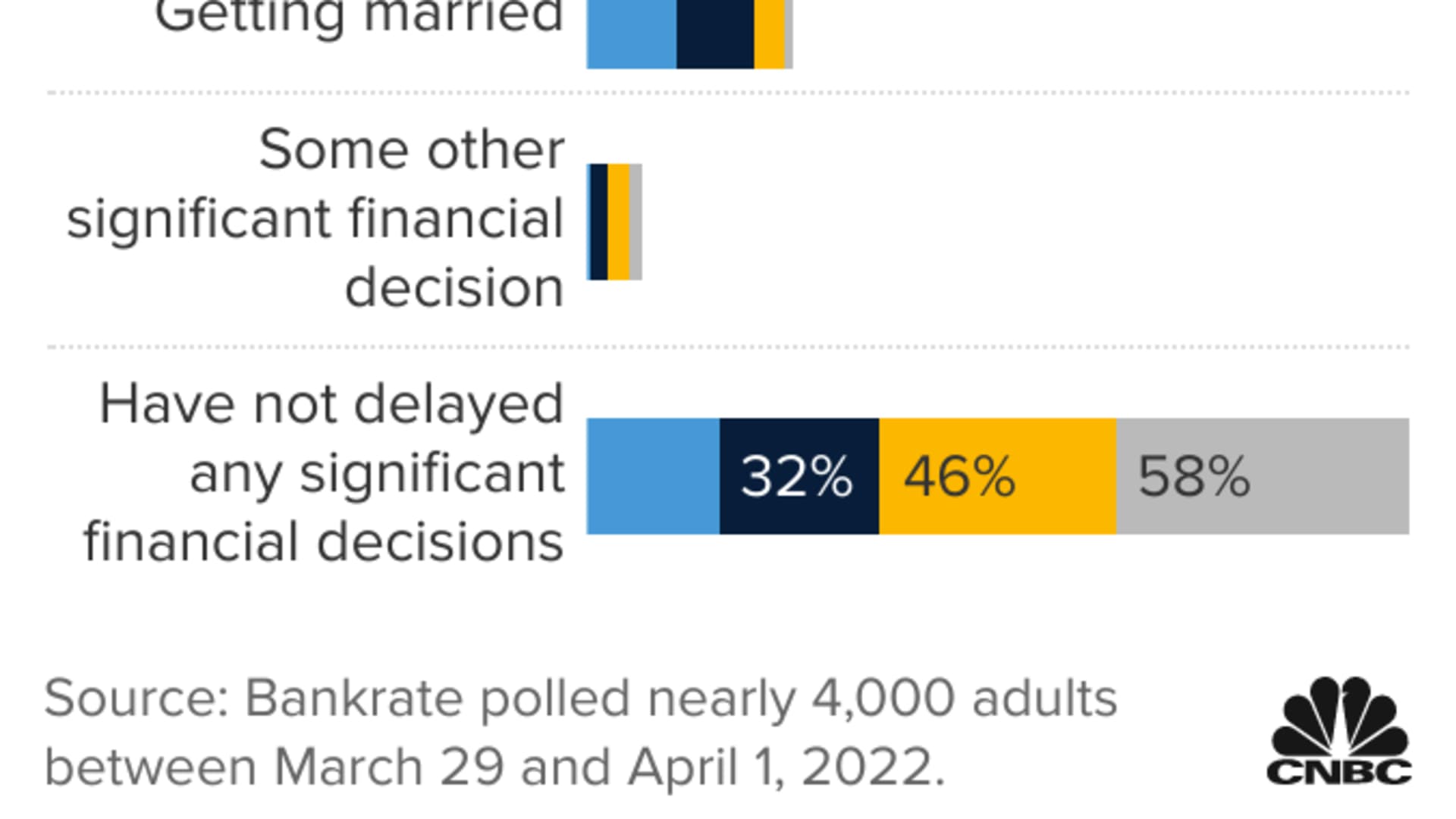
- While most student loan borrowers have sacrificed saving for emergencies and retirement, some have also put off paying off other bills, buying a house or car, having children and getting married.
- Gen Zers and millennials are the most likely to say they delayed a major milestone because of their college debt burden, a Bankrate.com report finds.
Skyrocketing student debt has been devastating for young adults.
As the cost of college has risen, more students have had to borrow to help pay for school. Now, recent graduates are delaying some of life's major milestones because of their loan burdens.
Americans across all generations have made such sacrifices, from saving for retirement to purchasing a home.
Get Connecticut local news, weather forecasts and entertainment stories to your inbox. Sign up for NBC Connecticut newsletters.

However, more than three-quarters, or 74%, of Gen Zers and 68% of millennials who took out student loans for their college education put off a major financial decision as a result, according to a Bankrate.com report. That's compared to 54% of Gen Xers and just 42% of baby boomers.
"There's more debt for recent graduates and the burden of it is more significant than what their parents may have had to deal with," said Greg McBride, Bankrate.com's chief financial analyst.

Overall student debt now exceeds $1.7 trillion. Seven in 10 seniors graduate with debt, owing about $30,000 per borrower.
Money Report
Yet 59% of graduates with student loans said their college education improved their career opportunities and earning potential, Bankrate found.
"The lifetime earnings premium on a college degree is still in the neighborhood of $1 million," McBride said.
To ease some of the burden, President Joe Biden used his executive powers to extend the pause in federal student loan payments until September.
Nearly 43 million federal borrowers are hoping massive student loan forgiveness might be Biden's next major move on the debt problem.
"Until there is certainty, as a planner, I would encourage those individuals to continue to make payments and reduce principal while the interest accrual has been on pause," said Joe Buhrmann, a certified financial planner and senior financial planning consultant at Fidelity's eMoney Advisor.
"At the very least, you should redirect payments that had been applied to your student debt to either reduce other debt or build up savings."
Meanwhile, nearly two-thirds of parents are still worried about being able to cover the cost of higher education in the years ahead, according to a separate report by Discover Student Loans.
"It serves as a good reminder to all that when it comes to a college education, families should make sound financial decisions, including assessing their resources, anticipated costs and how much debt the student and family would incur, as well as the prospects for all parties to service any debt incurred," Buhrmann said.
"There are many ways to reduce the cost of a college education," he added, including knocking out some credits at community college before transferring to a four-year institution, relying more heavily on grants that don't need to be repaid and scholarships, seeking out less expensive schools, or living at home and commuting.
"In the worst case, there is nearly always the availability of student loans."






